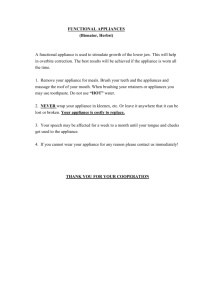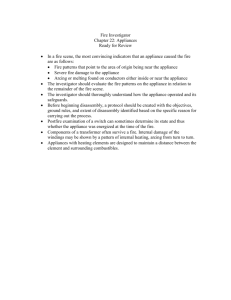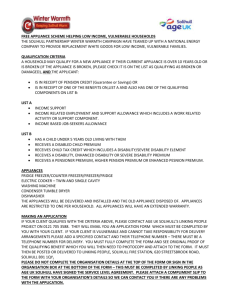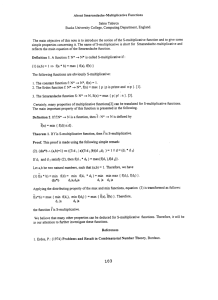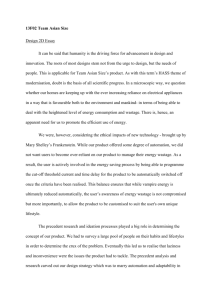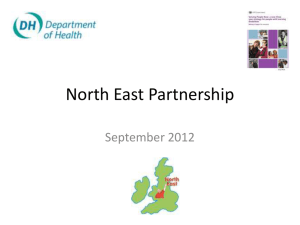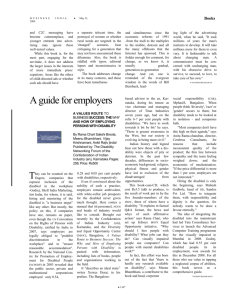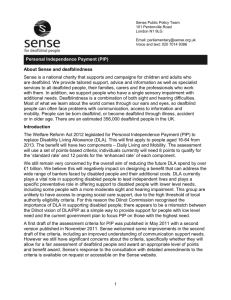DENW Response
advertisement
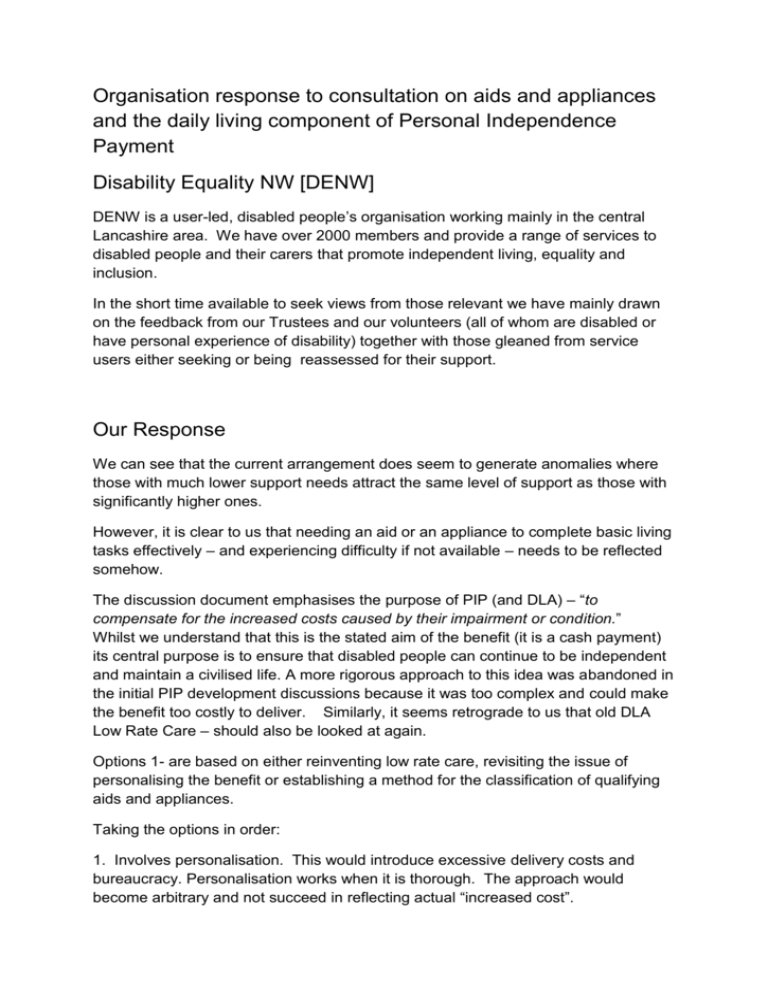
Organisation response to consultation on aids and appliances and the daily living component of Personal Independence Payment Disability Equality NW [DENW] DENW is a user-led, disabled people’s organisation working mainly in the central Lancashire area. We have over 2000 members and provide a range of services to disabled people and their carers that promote independent living, equality and inclusion. In the short time available to seek views from those relevant we have mainly drawn on the feedback from our Trustees and our volunteers (all of whom are disabled or have personal experience of disability) together with those gleaned from service users either seeking or being reassessed for their support. Our Response We can see that the current arrangement does seem to generate anomalies where those with much lower support needs attract the same level of support as those with significantly higher ones. However, it is clear to us that needing an aid or an appliance to complete basic living tasks effectively – and experiencing difficulty if not available – needs to be reflected somehow. The discussion document emphasises the purpose of PIP (and DLA) – “to compensate for the increased costs caused by their impairment or condition.” Whilst we understand that this is the stated aim of the benefit (it is a cash payment) its central purpose is to ensure that disabled people can continue to be independent and maintain a civilised life. A more rigorous approach to this idea was abandoned in the initial PIP development discussions because it was too complex and could make the benefit too costly to deliver. Similarly, it seems retrograde to us that old DLA Low Rate Care – should also be looked at again. Options 1- are based on either reinventing low rate care, revisiting the issue of personalising the benefit or establishing a method for the classification of qualifying aids and appliances. Taking the options in order: 1. Involves personalisation. This would introduce excessive delivery costs and bureaucracy. Personalisation works when it is thorough. The approach would become arbitrary and not succeed in reflecting actual “increased cost”. 2. Virtual low rate care (old DLA). 3. This option would ignore those for whom the aid or appliance was costly or crucial. 4. This option is caught up by boundary issues and would almost certainly result in challenge(s) at appeal. Given the interpretation being given by current case at Tribunal we do not see why the same complexity would not arise. The prospect of developing a “list” approach via this process is daunting. In addition, the option assumes that all people will receive the same level of assistance or be able to utilise the aid or appliance with the same effectiveness. 5. For PIP scores to have meaning the present system can only respond to point scores of 2. In some cases this would in effect mean that the need to use an aid or appliance would be disregarded entirely as an indicator of need or difficulty irrespective of its importance. We also want to make the following more general points about the impact of this change. 1. The loss of “passporting” to the severe disability premium (and carer’s allowance?) which is more or less implicit in the options proposed will mean a significant loss of weekly income (over£100). For those who have been budgeting and organising their support for some time this is a massive reduction to accommodate. 2. The discussion document makes no reference to how the change might impact on the provision of social care locally. Most local authority social care arrangements consider the daily living component as relevant income when financial assessment takes place. Most of the options would result in its removal. We have not been able to reach a conclusion about which option we would propose but suggest that if change is to happen “choice” be considered, as clearly one option isn’t going to work for all. Other than introducing further stratification of the component as a whole, a model based on well-established personalisation principles is probably the fairest way to go, but it will need to be supported by effective assessment - and the financial consequences this would entail. DENW 29th January 2016
